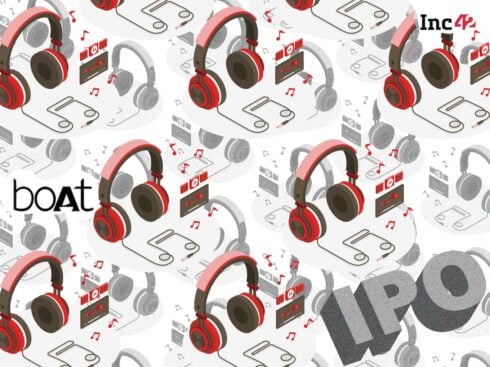SUMMARY
Healthtech startups have been creating Covid-19 trackers, low-cost ventilators and more to tackle the current situation
There is enough room for healthtech startups to support government efforts, says Predible Health’s Suthirth Vaidya
Startups have been leveraging technological tools including AI and big data since the turn of the decade to solve healthcare problems
As the number of Covid-19 cases increases every day, healthcare professionals are racing against time and risking their lives to take care of others. India’s healthtech startups have also joined in the efforts by leveraging cutting-edge technology to beat the pandemic and its impact.
From creating Covid-19 trackers and cheaper ventilator designs to manufacturing ICU equipment, startups have been working relentlessly ever since the virus started spreading in India. They have been bringing unique propositions to the table to address some of the challenges faced by the healthcare system. For instance, with the country seeing a massive shortage of PPEs, Mumbai-based Karkhana.io is manufacturing face shields, aerosol boxes, and goggles. The startup is also offering tools to help others manufacture PPEs and other ICU equipment such as valves, connectors, and ventilator parts and has received a grant of INR 20 Lakh from ACT for the same.
One of the major challenges faced by the country today is health workers falling prey to the coronavirus. Some of them got infected in quarantine facilities as well. To prevent that, healthtech startups such as Dozee and InnAccel have devised innovative solutions that can help them monitor and treat low-risk patients remotely.
And to address the shortage of beds, Bengaluru-based Dozee does so by converting normal beds into a mini ICU bed. The startup offers artificial intelligence (AI) enabled sensor sheets that are placed under the patient that needs constant monitoring. The sheet measures vitals such as breath rate, heartbeat, sleep, stress, among other things. Explaining further, Dozee’s cofounder and CEO Mudit Dandwate said that the data is sent to a mobile application that can be accessed by the people close to the patient. Further, a doctor from Dozee’s team also keeps an eye on the reports for every patient on a dashboard in real-time. “The reports provided by Dozee have 98.4% medical-grade accuracy,” he said.
Another startup that has responded swiftly to the shortage of medical equipment and devices is Bengaluru-based InnAccel. The medical device startup has developed SAANS, a proprietary continuous positive air pressure (CPAP) ventilator machine for babies.
Private Sector Engagement Through Healthtech
The role of private sector players has never been felt more, especially in research and testing to check the spread of coronavirus in India. According to healthtech startup Predible Health’s cofounder Suthirth Vaidya, it is the responsibility of the government to ensure the diagnosis, containment, and care for all affected by the Covid-19 disease, but there is enough room for healthtech startups to support the government in these aspects.
“Healthtech startups will be able to support the government to mitigate the impact of coronavirus,” Vaidya said. Predible Health works with respiratory illness diagnosis, which is one of the key focus areas for the Covid-19 disease too. Predible was one of the healthtech startups selected by Inc42 for our 2020 startup Watchlist.
The healthcare industry in India has been growing at a tremendous pace over the years, thanks to advanced technologies, increased internet penetration, and enhanced healthcare policies. The healthcare market in India is expected to increase threefold to INR 8.6 Tn by 2022. It further states that the government’s expenditure on the health sector has grown to 1.4% in FY18 from 1.2% in FY14.
The government of India also plans to increase public health spending to 2.5% of the country’s GDP by 2025. According to DataLabs by Inc42, the healthtech sector recorded total funding of $586.93 Mn in 2019, an increase of over 10% in the amount of funding from the previous year.
Technological advancements in surgical equipment, for instance, have enabled doctors to treat highly complex and critical cases. It has also helped in reducing the length of extended hospital stays for complex surgeries such as knee replacement and bariatric surgery. For example, laparoscopic surgery procedures improve outcomes and reduce the time and money caused because of prolonged stays. Pain management is also a segment that has seen tremendous advancements.
According to the World Health Organisation, nearly half of all cancers can be prevented by reducing known risk factors. This is where technology comes handy. Innovations and disruptions have been taking place in cancer detection, treatment, and research. For instance, tech-based health startups such as OncoStem, AINDRA, NIRAMAI, and Integrated Wizards Solutions work in the sphere of early detection and Zumutor Biologics works in the sphere of developing novel treatments for cancer that seek to attack the core of the disease.
Technology has also played a key role in removing the taboo attached to the disease. “In this connected world, patients and families are getting more and more informed about new advancements in treatment options in the field of healthcare, building more confidence in people. The reach of technology is making it possible to not only be informed about the disease and all its aspects, but also get connected with other patients and survivors, and gain first-hand knowledge on dealing with cancer,” said Rashie Jain, founder of Onco, an online platform that connects cancer patients to oncologists across the world for advice on treatment and management.
Tech Advances Diagnosis, Treatment
Worth $50 Bn in 2018, the Indian bioeconomy currently comprises about 600+ core biotechnology companies and more than 2,600 biotech startups, accounting for a 3% share in the global biotechnology industry. India is the leader in the global supply of DPT, BCG, and measles vaccines. It is also one of the first countries to have a department dedicated solely to advancing innovations in biotechnology.
Young startups are also coming together to help doctors diagnose chronic diseases at an early stage. Predictive analytics and machine learning have been of great use in faster and accurate diagnosis. A medical wearable startup, ten3T, has developed medical-grade wearable devices attached with a Cicer (device embedded with multiple sensors) to help monitor a patient’s health, even at home. mFine, a Bengaluru-based healthcare startup has close to 1200 diseases in the system to give 85% of accurate diagnosis.
The startups have been primarily focussing on creating products that drive engagement. When designing for utilitarian healthcare, often the aim is to design towards minimizing the time users spend in the product. “Healthcare apps need to be designed fundamentally simple because the diversity in users shall be wide. People of diverse socio-economic backgrounds find use cases with the same health app. They may or may not be modern in terms of product usage, but on average should be assumed to be below average,” said Premankan Seal, Community Chief Design Officer, Canvs.in.
He added that this is imperative because the defining behaviour patterns arise from the bottleneck user pool and the app will need to solve for the least modern user and the savviest ones at the same time.
Fitness And Mental Health: The Early Wave
While sector analysis clubs all startups in this space under one classification, the categories go way beyond. The services, products, and offerings are more varied in the space than in any other sector. To broadly classify, the sector comes under 11 categories including online pharmacy, telemedicine, personal health management, home healthcare, fitness & wellness, diagnostics, biotech R&D, medical devices, healthcare IT, biopharma, and genomics.
Within these categories, fitness and mental health have been an early adopter of technology, primarily because of the age group it caters to, which is 20-40. India has thus seen a rise in the number of fitness and nutrition startups like Fitternity, Curefit, HealthifyMe, GoQii, HealthKart along with mental health and wellness startups like Yourdost, and InnerHour. While they all adopt a different model – Cure.fit manages the entire fitness stack and GoQii has a wearable device along with dedicated remote trainers – the ultimate objective is to get users working out, eating right, and generally fit.
On National Sports Day 2019, Prime Minister Narendra Modi announced a new nationwide campaign called the FitIndia Movement. The Prime Minister called upon the country to get serious about physical fitness, amplifying his usual pitch for yoga to include running, cycling, and walking. This has also led to more citizens leveraging technology to get more aware of fit and healthy lifestyles.
Need To Address Public Healthcare In Rural Area
When it comes to public healthcare for rural areas, there seems to be a shortage. According to the latest government data, as of March 2018, the country has only less than three blood banks for every 10 Lakh people. “Current tax policies and regulations do not cover home healthcare and diagnostic tests and other at-home aspects still form a large part of people’s out of pocket expenses,” Meena Ganesh, MD and CEO, Portea Medical told Inc42.
In 2018, the Indian government launched a National Health insurance for certain entitled people chosen as per the government’s socio-economic and caste census data. However, the policy was heavily criticised on how a significant part of rural India simply doesn’t have access to health services, to begin with. The need of the hour is that rural India should be provided with affordable healthcare and that can’t be provided without promoting local innovations.
“I think technology is the only way to get access for 100 Mn Indians. There’s no way even physically to do this, so that’s very exciting. Second, is you can use technology to solve everything from making warehouse operations completely error-free to make the app very user friendly, so that people from 20-80 years of age can use it,” said Ananth Narayanan joined Medlife as cofounder and CEO.
A recent report revealed the grim situation of the healthcare industry in India which said that the country has a shortage of an estimated 6 Lakh doctors and 2 Mn nurses. Apart from this, private Indian healthcare is not affordable for a majority of citizens, while public healthcare infrastructure is not adequate for the Indian market.
According to the latest government data, as of March 2018, the country has only less than three blood banks for every 10 Lakh people. Besides government funding, the need for private foundations to step up and encourage research has thus been felt deeply. Just like successful industry-academia partnerships in the United States of America and the European Union, Indian academic institutes may have to find ways to participate with industry to solve real-life problems.
“Pharma and healthcare organisations need to constantly revisit their company culture and its agility to respond to policy changes. Enabling culture to embrace such change is technology and innovation. Industry, while associating themselves with academia, needs to invest in basic research and work alongside enterprising startups in order to yield strategic dividends,” said Praveen Mokkapati, associate partner at Anthill Ventures.
Well, the installation of any new practice or technology can cause changes to workflow, and not always in expected ways. In a healthcare organisation, it’s likely that a new technology will cause a significantly greater ripple effect, said Kevin, founder and CEO of Sidebench . Before installing a new product, or perhaps even before installing a new partner, such as a startup, it’s necessary for healthcare organizations to understand how these incoming changes will reshape their working structure and practices, he noted.
It is important for a startup partner to ask questions to get the organisation thinking about the consequences of introducing new products. “If this is not mapped out at the beginning of the relationship, you risk problems in the design and development phase if you’re going to require internal stakeholders involvement to build the product,” said Kevin.
Technological tools including artificial intelligence and big data are expected to revolutionise the industry in the future. However, at present many countries, including India do not seem to be prepared for tackling deadly infectious diseases. A Canadian firm that specialises in the surveillance of infectious diseases was allegedly the first to report about the impending outbreak of novel coronavirus using their AI-powered system. It also warned its clients against travelling to danger zones like Wuhan and used global airline ticketing data to predict where the virus would spread.
“This is a case in point of how technology can become an enabler in access to timely healthcare and prediction of disease outbreaks,” Portea Medical’s Ganesh told Inc42 earlier.



























